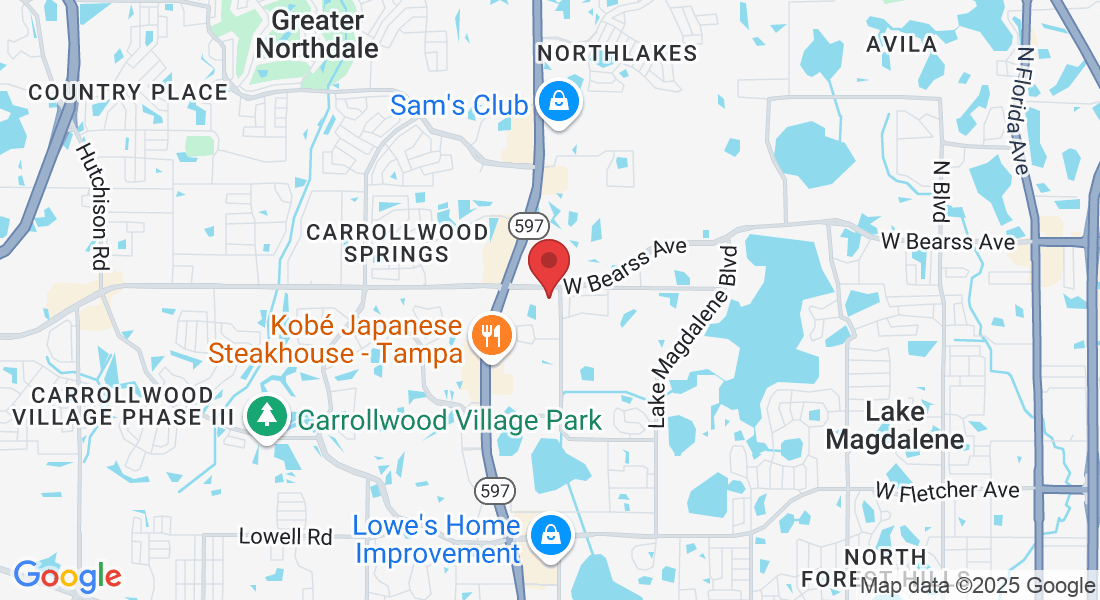Weight Loss Center | Tampa | Brandon | Florida - Dr Urshan
The Drug-Free Weight Loss Solution That’s Safer Than Oz**pic, Smarter, and Actually Works
(Discover the natural, side-effect-free method that’s changing lives every day without taking expensive shots)

"I Feel Like A New Person!"
"Joining this weight loss program completely changed my life—I not only lost the weight I’d been struggling with for years, but I gained confidence, energy, and a healthier mindset. I finally feel like myself again, and I know these results will last." Sandra Tampa, FL.
Are You Tired Of Your Weight Dictating Your Life?
Feeling trapped in your own body can be overwhelming.
You wake up every day dreading the mirror, trying on outfit after outfit, only to feel disappointed and defeated.
Social invitations become a source of anxiety rather than excitement because you’re embarrassed about how you look. The thought of being in public, facing judgment—or worse, your own reflection—makes it easier to just stay home. It’s not just about the weight; it’s the heavy burden of shame, self-doubt, and isolation that comes with it.
You miss out on moments with friends and family, not because you don’t want to be there, but because you feel like you don’t belong. And underneath it all is that nagging voice, filled with self-disgust, asking, "How did I let it get this bad?"

But it doesn’t have to be this way. At Dr. Urshan Health, we understand the emotional weight that comes with physical weight.
We’ve helped hundreds of people just like you—people who felt stuck, ashamed, and hopeless—find a way back to themselves.
Our natural, healthy weight loss approach isn’t just about shedding pounds; it’s about reclaiming your life, your confidence, and your joy. You don’t have to face this alone. We’re here to support you every step of the way, guiding you toward a future where you feel proud, empowered, and free to live life fully.
Free Yourself From Excess Weight and Get Your Life Back!
Here Are Some Of The Results Our Patients Are Experiencing After Our Weight Loss Program
Before Our Program

"I hated looking in the mirror and felt trapped in my own body."
"I avoided social events because I was embarrassed about how I looked."
"I rifled through 20 outfits, hating how I looked in all of them."
"I felt exhausted, defeated, and ashamed every single day."
"I felt stuck in a cycle of self-doubt and frustration with no way out."
After Our Program

"Now, I see confidence staring back at me every day."
"Now, I say yes to every invite, excited to show up as my best self."
"Now, I love getting dressed because everything fits—and I feel amazing."
"Now, I feel energized, confident, and proud of how far I’ve come."
"Now, I feel free—healthy, happy, and finally in control of my life."
The Weight Loss Reboot™
Unlock the Secret to FINALLY Dropping The Weight For Good and Regaining Your Life...
(Without Risking Your Life With Surgery, Painful Injections, or Addictive Medications!)

Here's what you get:
Body Composition Analysis
Initial Consultation
39 Foods That Fight Chronic Pain
Action Plan to Help You Lose Weight For Good!
Regular Price: $300
Today Just $27
Price valid for Tuesday, 07/08/2025
WE GET RESULTS
Here's What Our Patients Are Saying About Our Weight Loss Clinic!
"I lost a total of 18 pounds in 40 days with Dr. Urshan..."
"I've never been hungry on this program. I've never felt deprived and I know people out there gonna go 'You're kidding!' No I'm not, so I made up my mind I am gonna do this and learn how to eat well. It's been eight months and I know how exactly to stay right within my range." - Peg

"I NEVER Felt Like I Was Starving.."
"I never felt like I was starving. I never felt like I was overly hungry. I don't have the cravings or the appetite for some of the foods that I used to eat..."
- Jeff

Friends Katie & Lorie, both successfully lost weight after going through Dr. Urshan's program.
"I've learned to just feel great with what I eat and make healthy choices and I feel fantastic!" - Katie
"If I can do it, my friend Katie did it, my friend Michelle did it, my friend Debbie did it, and that's just 4 people. My father, 72 years old, did the program, lost a total of 89 pounds in the course of two programs." - Lorie

"The thought of feeling better on the inside was really what convinced me to start the program."
"Imagine losing 30 pounds in 40 days, with no shots no pharmaceuticals, no appetite suppressants. Just natural food, and getting your body healthy and feeling clean on the inside" - Laura

"When I bought a pair of jeans in a size that I had not worn since I graduated from high school-- that was absolutely flooring for me!"
"My husband and I did the program together and we, in the 40 days lost a total of 84 pounds. You have to do this program. It is literally the best thing that will happen to you." - Ingrid

"I was extremely skeptical but still decided to go through and be able to try and it's by far the best decision I've made..."
"I've got more energy than I've had in 20 years. I sleep great. Nothing hurts anymore. My feet aren't sore when I get up and try to walk and everything. This feels great!" - Dan

"As both a patient and a medical doctor I am more than impressed..."
"It's not just the weight loss, it's how you feel because a lot of the nurses I work with - they work shift work and I usually feel like a million bucks now and I can get through the end of my shift and I still have a smile on my face and feel great!" - Dr. Jackie Barnes

"It's just a great program to overall feel better."
"I've completed the 40 day program and now I feel amazing. I have gotten some more energy back. I feel healthier." - Bonnie

"In just 40 short days I lost 27 pounds on Dr. Urshan's weight loss program."
"With Dr. Urshan's program, I've noticed an extreme improvement in my headaches, my sleep, just my overall well-being health-wise. I feel great and any pain or inflammation that I was having is just gone." - Deanna

"I am on day 13 and I have already lost 11.7 pounds."
"There's no shots, there's no drugs, you can do it all on your own. You just need a little motivation, and guess what, Dr. Urshan and his team has it all for you!"- Carmin

"I was on multiple medications, had a swollen feet all the time and wasn't sleeping well..."
"Post program I'm off all my medications. My feet don't swell and I sleep like a baby. My level of energy is much higher than it has been in years. I feel like I'm 21 again!"- Kerry

"I did the program and within a week I started feeling different."
"I'm not swollen anymore. My rings fit, my jewelry fits, my clothes, but the program works because it's a way of life now."- Angela

"I have control over my body now and it's due because Doctor Urshan showed me a way to help listen to my body."
"I think the biggest change for me is how well I feel. I've been able to keep the weight off which that for me has been amazing because I didn't buy special foods." - Pasha

"It's a 40-day program that's designed just for you."
"The biggest change has been the ability to do things with my family and my grandkids that I wasn't able to do before." - JoAnn

"Dr. Urshan's program changed my life in many ways..."
"I now have a better relationship with my husband, my family, and my children. I am all around healthier and happier. I'm no longer on any blood pressure medication. -Nicole

"This program has changed my life..."
"Some of my relatives asked, 'Are you sick?' I said no but I took an excellent weight-loss program and it worked!" -Mike

Why Choose Us
Dr. Urshan Health Helps People Just Like You With Excess Weight problem in Tampa, FL.
350+
5 Star Reviews
10K+
Happy Patients
10+
Years Experience

Before & Afters







STILL NOT SURE?
Frequently Asked Questions
How does proprietary weight loss technology work?
Dr. Urshan’s weight loss protocol may prove to be one of the greatest advancements in natural health. It is based on the fact of analyzing the human body as a whole versus separate dividable parts. There is a tremendous correlation with the natural adaptive response mechanism of the immune system, chronic toxicity, and chronic inflammation.
Many of our patients and physicians that have gone through the program are encouraged as to the way they feel and the anti-inflammatory component of the program.
Our weight loss program starts with an analysis to assess a patient’s specific health history, biological preferences, and nutritional needs to bring the body into an optimal state for healing purposes. Weight loss is a by-product of the program.
Is Dr. Urshan's weight loss program personalized?
Through this personalized weight loss program, you will reset your biological preferences and any weaknesses or imbalances**. Once this information is known, you will be able to lose weight through a personalized approach that is unique to you.
What is Dr. Urshan's weight loss program?
As a natural healthcare practitioner, it is absolutely essential that our weight loss system be all-natural, safe, and effective. This unique weight loss system surpasses all of those requirements, focusing on areas of unwanted fat, by regulating your body’s systems to support conditions such as thyroid dysfunction and adrenal fatigue.
By detoxifying your body systemically at a cellular level and enhancing your metabolism, our weight loss program changes your weight set point with an exit strategy of promoting permanency**
How does proprietary weight loss technology work?
Dr. Urshan’s weight loss protocol may prove to be one of the greatest advancements in natural health. It is based on the fact of analyzing the human body as a whole versus separate dividable parts. There is a tremendous correlation with the natural adaptive response mechanism of the immune system, chronic toxicity, and chronic inflammation.
Many of our patients and physicians that have gone through the program are encouraged as to the way they feel and the anti-inflammatory component of the program.
Our weight loss program starts with an analysis to assess a patient’s specific health history, biological preferences, and nutritional needs to bring the body into an optimal state for healing purposes. Weight loss is a by-product of the program.
What makes your weight loss program different from using weight loss drugs?
Our program focuses on natural, sustainable weight loss without relying on medications that can have harmful side effects. We address the root causes of weight gain through personalized nutrition, lifestyle changes, and metabolic support, helping you lose weight in a way that’s healthy and lasts for the long term.
Are weight loss drugs like Ozempic safe?
While drugs like Ozempic may promote short-term weight loss, they come with serious risks, including nausea, vomiting, pancreatitis, gallbladder issues, and even potential thyroid tumors.
These medications are not designed for long-term use, and most people regain all the the weight or MORE once they stop taking them.
What are the common side effects of weight loss medications?
Weight loss drugs often cause side effects such as fatigue, digestive issues (nausea, diarrhea, constipation), mood changes, headaches, and even more severe complications like heart problems, kidney damage, or gallbladder disease. They may also create dependency without addressing the underlying causes of weight gain.
Can I maintain my weight loss after stopping Ozempic or similar drugs?
Most people regain the weight once they stop using these medications because the underlying habits and metabolism haven’t been properly addressed. That’s why our natural approach focuses on lifestyle changes that help you maintain your results without relying on drugs.
Is it possible to lose weight naturally without medications?
Absolutely. Natural weight loss is not only possible but often more effective long-term. By focusing on balanced nutrition, physical activity, hormone regulation, and healthy habits, you can achieve and maintain a healthy weight without exposing yourself to the risks of medication.
How quickly will I see results with your natural weight loss program?
Results vary based on individual factors like metabolism, lifestyle, and commitment to the program. However, most clients begin to see noticeable changes within the first few weeks. Unlike quick-fix drugs, our approach ensures the weight you lose stays off for good.
Why do people regain weight after using weight loss drugs?
Weight loss drugs suppress appetite temporarily but don’t teach healthy eating habits or improve metabolism. Once the medication stops, appetite returns, and without lifestyle changes in place, it’s easy to regain the weight. Our program focuses on long-term solutions that create lasting change.
What’s the healthiest way to lose weight and keep it off?
The healthiest way to lose weight involves a balanced approach: proper nutrition, regular physical activity, stress management, sleep optimization, and metabolic support. Our program is designed to help you develop these habits, so your weight loss is sustainable for life.
Is natural weight loss slower than using weight loss drugs?
While natural weight loss may take longer than the rapid results from medications, it’s healthier, safer, and more sustainable. Quick fixes often lead to rebound weight gain, while gradual, natural weight loss helps you build habits that last a lifetime.
How does your clinic support long-term weight maintenance?
We don’t just help you lose weight—we teach you how to keep it off. Our program includes ongoing support, education, and personalized strategies to maintain your progress. You’ll develop a healthier relationship with food, improve your metabolism, and gain the tools needed for lifelong success.

Say Goodbye to Stubborn Fat, Unwanted Pounds, and Low Energy!
Stop the cycle of weight gain—lose 20-30 pounds and energize your body in just 40 days with our natural program.
Start your transformation today with our doctor-supervised, holistic weight loss program. Unlike quick-fix diets or risky medications, we focus on the root causes of weight gain and provide sustainable, natural solutions. Reclaim your health, boost your energy, and see lasting results—all while feeling better and more confident in your own skin.
Don’t wait any longer—your new, healthier life starts now!

Dr. Jonathan Urshan, DC.
Hi, I'm Dr. Urshan!
The day my mom was diagnosed with cancer changed everything for me. She refused chemotherapy and radiation, choosing instead to heal naturally through diet, exercise, and strength training.
And it worked—35 years later, she’s still strong, vibrant, and thriving. Watching her defy the odds shaped the way I see health, and it’s the reason I’ve dedicated my life to helping others overcome their challenges without relying on medication, injections, or surgery.
I’m Dr. Jonathan Urshan, a proud Florida native. My journey led me to the University of South Florida and then Parker Chiropractic University, where I earned my doctorate. Along the way, I had the incredible opportunity to open two clinics in Southern Guerrero, Mexico.
We don’t just help people lose weight, improve hormone imbalances, or relieve pain—we give them back their quality of life. This is my mission. This is my passion. And I can’t wait to help you take the first step toward a healthier, stronger, transformed life.

DISCLAIMER: All information contained within this site, is for informational purposes only. It is not intended to diagnose, treat, cure, or prevent any health problem. No action should be taken solely on the contents of this website or our testimonials. Always consult a physician or qualified health professional on any matters regarding your health or on any opinions expressed within this website. Results vary from patient to patient.

